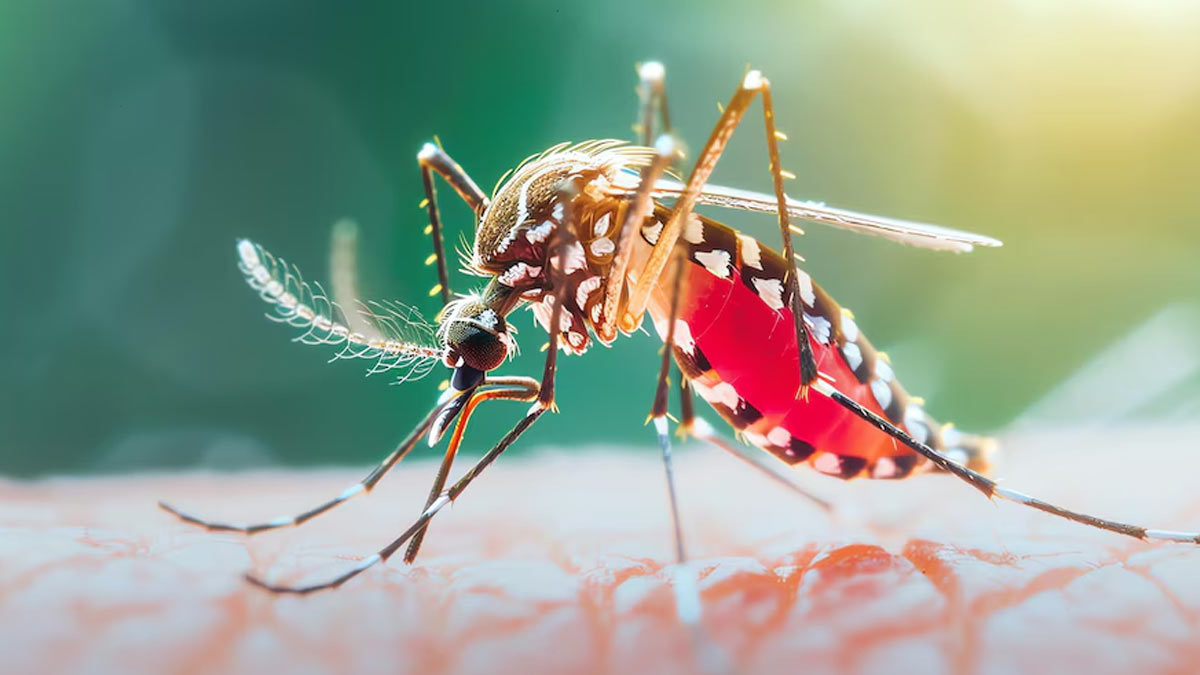
As the northeast monsoon sets in, Chennai and many other regions of Tamil Nadu, along with South Indian states such as Karnataka and Andhra Pradesh, are experiencing heavy rainfall. As a result, mosquito-borne illnesses have become extremely prevalent, raising concerns among health officials.
Table of Content:-
In response to this growing threat, government bodies are urging residents to exercise caution and remain vigilant.
Speaking at a national conclave on vector-borne diseases event conducted by All India Institute of Medical Sciences (AIIMS)-Madurai on Saturday, Director of Public Health and Preventive Medicine T. S. Selvavinayagam said that 18,000 dengue cases have been reported in Tamil Nadu so far, with more than 100 dengue cases getting reported every day.
He noted that while malaria has been eradicated in the state, with only a few districts reporting cases, dengue has consistently posed a challenge, as it tends to spread seasonally. However, he emphasised the importance of considering this number in relation to the state's total population of 80 million. He stated that, due to effective preventive measures, the current figure is significantly lower than anticipated and is not a cause for alarm.
Also Read: Dengue Outbreak In Manipur: Health Minister Urges Community To Unite In Fight Against The Disease
Heavy Rains And Dengue Spikes: What Is The Link?![]()
During the rainy season, there is an increased risk of mosquito-borne illnesses like dengue and malaria. This is because heavy rains lead to standing water, which creates an ideal breeding ground for mosquitoes.
Therefore, health authorities recommend that people eliminate potential breeding sites around their homes, such as clogged drains and containers that collect water, to help curb the spread of these illnesses.
“In addition to the role of government and local bodies, the public, by making sure their surroundings remain clean by clearing off any possibilities of water stagnation, could eliminate it. As dengue mosquitoes have a flight range of 500 metres, it is every individual’s surroundings that must remain clean and healthy,” Dr Selvavinayagam noted.
What Measures Is the Government Taking?![]()
In a conversation with IANS, Health Minister Ma. Subramanian, said that the department is closely monitoring vector-borne diseases like dengue in Tamil Nadu. He noted that 10 districts—Chennai, Coimbatore, Krishnagiri, Tiruppur, Tiruvallur, Theni, Madurai, Tirunelveli, Thanjavur, and Tiruchi—account for 57 percent of the total dengue cases in the state. According to him, the government is currently focusing on these areas.
Dr Selvavinayagam emphasised that the health department is actively monitoring dengue and other fever-related cases reported in both government and private hospitals. He urged the public to refrain from storing rainwater in discarded household items for extended periods, as this practice creates ideal breeding grounds for mosquitoes. To prevent waterborne diseases, he also recommended that individuals drink only boiled water.
Also Read: UP Minister Urges Dengue Awareness In Key Meeting To Combat Rising Cases
“During the monsoon, vector-borne diseases tend to rise, and we are monitoring all districts closely. Our surveillance efforts have enabled us to identify cases early and implement preventive measures to stabilise the situation,” he explained.
Dr Selvavinayagam also noted that vector surveillance helps pinpoint the areas from which cases arise, allowing for targeted preventive actions. Regarding malaria, he mentioned that the Directorate of Public Health has identified 33 districts free of indigenous cases. While a limited number of malaria cases have been reported in a few districts, officials are monitoring the situation closely, and no fatalities have been recorded.
Additionally, he emphasised the role microbiologists are playing in identifying viral variants and sequencing genomes, which is essential for developing vaccines and treatments.
Ongoing research is aimed at understanding the impact of viruses on humans to improve outbreak prevention strategies.
Also watch this video
How we keep this article up to date:
We work with experts and keep a close eye on the latest in health and wellness. Whenever there is a new research or helpful information, we update our articles with accurate and useful advice.
Current Version

